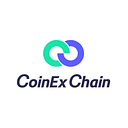Innovative CSC to Challenge an Impossible Trinity in Blockchain Technology
In traditional monetary economics and banking, there is a concept called the “Impossible Trinity”, or Trilemma. It states that, of the following three characteristics, a country in an open economy can have any two of the three, but not all three: (i) an independent monetary policy, (ii) a fixed foreign exchange rate, or (iii) free capital flow. Similarly, the “impossible trinity” also exists in the world of blockchain technology.
In the blockchain, the “impossible trinity” involves three components: decentralization, security, and scalability. The difficulty lies in the fact that by improving the quality of any two components, the design must sacrifice some of the advantages of the third.
Here, decentralization refers to having a large number of nodes involved in block generation and validation. Generally speaking, the more nodes there are, the more decentralized the network is.
Security is the cost required to gain control of the network and is usually pegged to real-world assets in the design of consensus mechanisms. For example, the proof-of-work (PoW) consensus mechanism is measured by the hashrate.
Scalability deals with the number of transactions processed per second (TPS). The main reason for a blockchain’s poor scalability is that each transaction has to be agreed on all nodes.
Mainstream blockchains, e.g. Bitcoin and Ethereum, have made trade-offs on one of the components of the “impossible trinity”.
Bitcoin, as a decentralized cryptocurrency, meets the design requirements of decentralization and security by sacrificing scalability.
Ethereum 2.0 will use a Proof-of-Stake (PoS) consensus mechanism. The Ethereum network enables not only transfer but also the running of smart contracts, making the application scenarios more complex. However, at present, Ethereum is poorly scalable, costly, and easily congested.
CoinEx Smart Chain (CSC) introducing an innovative approach to address the “impossible trinity”

Built on the PoS consensus protocol, the decentralized, efficient, and energy-saving CoinEx Smart Chain helps you easily build DApps.
“Resources should be adapted to the improvement of hardware and software performance, and make trade-offs on the degree of decentralization.” Haipo Yang, the founder of CSC, had a clear plan in the early stage of developing CSC. He said, “The block size should be maximized on the premise of ensuring sufficient decentralization and as long as it can be supported by hardware and software, while the transaction costs need to be fixed by balancing multiple goals such as user experience, miners’ income, and prevention of abuse.”
Challenging the impossible trinity does not mean the use of violent solutions, but calls for the efforts to balance the relationships between the three components and meanwhile optimize each component on the basis of maintaining ecosystem security and stability, and specific to users’ needs. CSC just achieves mutual checks and balances in a well-balanced state.
CSC values lot the security of the code and nodes. Open-source code is run openly and can be reviewed by all. CSC adopts PoS (Proof of Stake) as the underlying consensus mechanism and integrates PoA to support up to 101 validators. Such a consensus mechanism has the following features:
1. A block is generated by up to 101 validators
2. Anyone can become a validator by staking without any permission
3. Validators generate blocks in turn. The mining difficulty is 2 when the node generates blocks normally, and the difficulty is 1 when the blocks are not generated in a predetermined order. When the block is forked, the chain with the most difficulty is selected.
4. Anyone can delegate tokens to the node he or she trusts
With the integration of PoS and PoA that guarantees decentralization to some extent, CSC enables high efficiency and generates a block in seconds while keeping transaction fees at a low level.
Noting that addressing the impossible trinity is no confrontation at all, founder Haipo Yang explained, “The maximum block size and the minimum transaction cost are key parameters that cannot be liberalized. It is inadvisable to put the two often controversial, extremely specialized parameters in the context of a community too early.” CSC features full compatibility with EVM from the perspective of innovating consensus mechanisms. It introduces an innovative approach to tap the greatest potential of a blockchain’s three components and is dedicated to forging a cost-effective on-chain ecosystem.
CSC will invite more developers to jointly secure blockchain. It has set up a $10 million support fund to encourage promising developers and users to join the ecosystem construction. We look forward to working with more developers and users in the open, fair, and transparent CSC ecosystem to make the “impossible trinity” possible.
